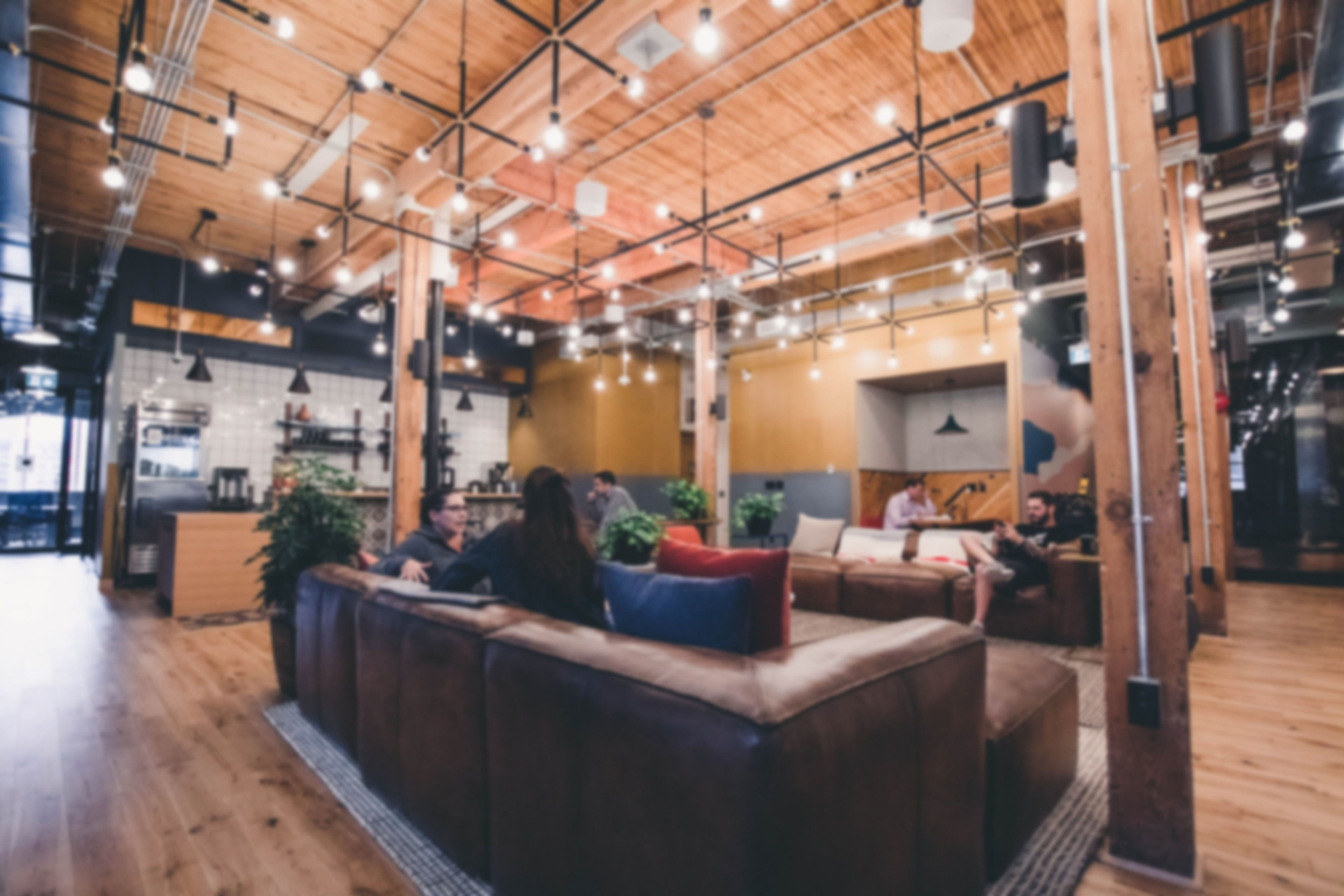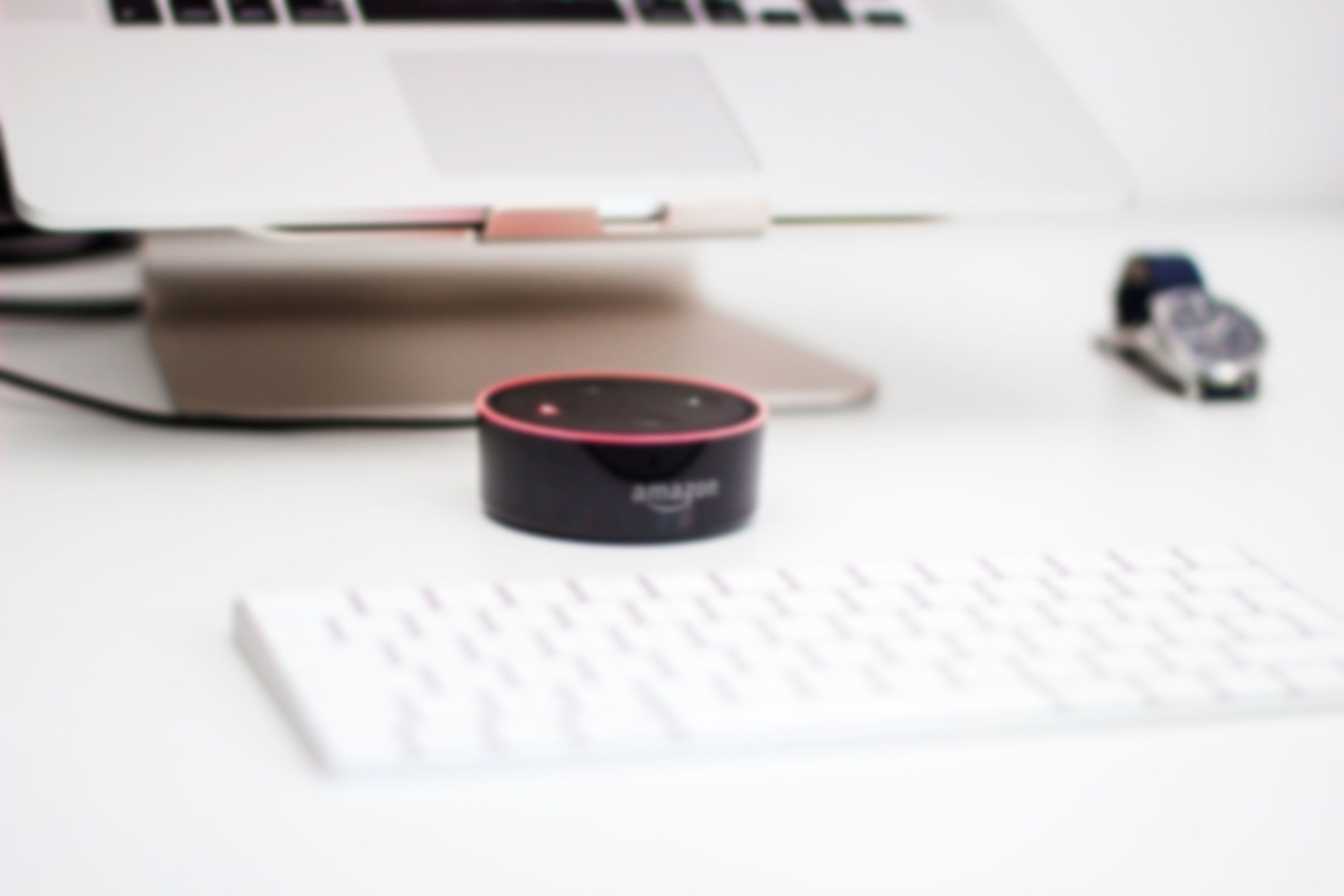
Your workplace by 2023 – It’s not going to look how you think!
You may not feel it every morning, but how, where and why we work are all changing rapidly. The days of a 9-5 job for life are largely over. And digital is disrupting things even more. But that can be a good thing.
As Tom Goodwin, author of Digital Darwinism, recently said: “Businesses need to create a culture of enthusiasm, a love of the emerging possible and a sensible approach to taking bigger, more gut-based risks to leverage the power of what is coming”.
Offices
As startups continue to chip away at legacy businesses, they need somewhere to work. Historically, they would have taken out a lease in an office block for a fixed term. This is great for the property company, but not so great for the company locked into the lease. Flexible co-working properties are becoming the order of the day.
It bases startups around other similar companies, who can collectively build their reputation, client list - or just enthusiasm. And there are no ties: when you need to move on or scale up/down, the tap can be turned. Silicon Roundabout, the flood of digital startups in London's Old Street and Shoreditch area, was a "bottom-up" phenomenon.

Shoreditch in London’s East End, where offices have been created from disused tube trains.
There are some downsides. Perhaps most obviously, being around other similar businesses allows for much greater job-poaching. And some more traditional clients might not like the informality. But it clearly works: WeWork, the co-working leader, is valued at over $20BN.

Office space is currently abundant: as retail changes in its use and purpose, space traditionally reserved for shops and banks will make town centre commerce a viable proposition once again. That leads us onto...
Shops
Retail is changing but not dying. Although many household names have bitten the dust in the past decade (Woolies and Maplin are gone, giants like M&S and House of Fraser are closing stores), their departure has usually been about a failure to adapt to changing tastes - in how we shop and in what we buy.
Above all, shops will have to try harder to engage with buyers. A key example is the use of next-generation Bluetooth transmitters – Apple’s standard is known as iBeacon. Shopping malls, stores, or even individual aisles can ping users with special offers, or more usefully, product information. That builds loyalty and new forms of engagement. It also generates new user data for stores to interpret. The next level of this technology will therefore be AI-enabled, by which you'll be invited to visit a store based on exactly who you are, and then be directed to products based on your personalised profile.

Technology will also augment the browsing experience, through VR, AR, and on-demand production. Trying on clothes or accessories such as glasses won't need you to think about what the item might look like. Exactly to your size and style, products will be superimposed onto your body in "smart mirrors", with levels of detail akin to trying them on in real life.
Other products will be manufactured in-store by robots - exactly to your requirements.As what we buy becomes increasingly commoditized through online channels, how we buy will adapt and change. While "everyday" stores will increasingly disappear, we'll see more innovations like pop-up stores and shops-in-shops, where small retailers and startups will have a physical presence. These spaces will be immersive and entertaining, too.
Connectivity and devices
Mass wi-fi has changed the way we work more than probably any other development. It makes a workforce mobile and more productive. It powers flexible working and working from home.

The mobile networks are starting to understand the use case of a mobile workforce, offering cheap unlimited data packages. On the horizon is 5G, which will run up to 100 times faster than the current 4G standard- that’s fast enough to allow you to download a full HD movie in less than 10 seconds! 5G will unlock more media-heavy experiences wherever we are; so expect to see new applications in virtual and augmented reality. Teleconferencing with screen-sharing and other rich functionality will also become available everywhere, whether you’re in the office or not.
Another revolution in mobility has been the move from big, fusty laptops to small, powerful devices: tablets, smartphones and various devices in between. As more services are delivered online rather than as downloaded software, there’s no real need to be at “your” desk – so expect to see smaller devices prevail (at cheaper prices too!) as we become more ubiquitously connected.

Artificial intelligence
As AI becomes more commonplace, it will permeate into every part of our work lives. As it gets smarter, it will work slowly up the white collar skills chain, starting with repetitive, easy work, and becoming more capable over the years.
For example, CAD software vendor Autodesk has been running trials using generative illustration software, which can automatically develop and plan offices - desk arrangements and furniture - without the need for a planner. Donotpay’s ‘robot lawyer’ started out appealing parking fines, has already moved into flight delay repayments and is being touted as a possible automation for thousands of hours of legal drudgery. A number of AI startups are now providing filtering for job applications, automatically filtering and assessing them.

Equally, AI will open up new efficiencies and opportunities for fairness. A startup called Stitched interprets CVs to make sure that people with qualifications are fairly considered for jobs. AI can also help new employees with onboarding, offering them personalised information and advice in how to orient them with a company.
AI will also be our guide. Process-driven roles such as outbound sales calls will be managed by artificially intelligent software, which will inform the employee as to the most effective next action. That will turbocharge employee productivity by allowing them to make more informed choices. AI also provides the brains behind a new type of product: intelligent devices.
Intelligent devices
As smart speakers such as Amazon’s Echo and the Google Home become increasingly popular in homes, these devices will also infiltrate the office.

Powered particularly by voice control (via our smartphones, again), they will plan your schedule: “Put something in my diary for me to meet Jane” will look at your calendar as well as Jane’s, book some time, and book a location too – the team at x.ai are leading the way in automating the Executive Assistant.
Such devices can augment or even replace reception staff, offering a “self check-in” process for visitors. Japan has dallied for some time with robotic assistants, (check out ChihiraAico for a lifelike robo-PA!) but screen-based and voice-controlled units are the growth area – from the reception desk to the production line.

Culture
Whilst board games and Beer O’Clock might be tempting, office culture is as much about the things that you can’t see. Why would you want to work in a company with perks but a rotten culture? Think of the workplace as somewhere which can harness collective pride - from employees, from stakeholders, and from customers.
"When you walk into a company 10 years from now, you won't see ping pong tables, but rather a culture that embodies the vision of the company."
Daniel continues, “if you are a company that donates a pair of shoes for every shoe sold, then you will see the stories of the positive impact the company has made; trips to meet the actual people that you have helped; personal contact with the people that the company has helped will be a large part of it."

Today’s workforce wants that sense of meaning in their connected, yet often shallow world. Companies that create a culture of meaning will be at a dramatic advantage – as significant as any created by technology.
Are you a business or private individual exchanging currency on a regular basis?
Join our free ’Member Exchange’ platform in minutes to save an average of 95% on your currency exchange costs.
Continue reading

Freemarket is a unique ’Member Exchange’ currency platform that’s turning conventional currency exchange on its head. If you’re a business or private individual, exchange currency by exchanging your funds with other members, for a fixed fee of 0.2%.
FreemarketFX Limited is authorised by the Financial Conduct Authority (FCA) – Firm No.585093
30 Great Guildford Street
London, SE1 0HS



